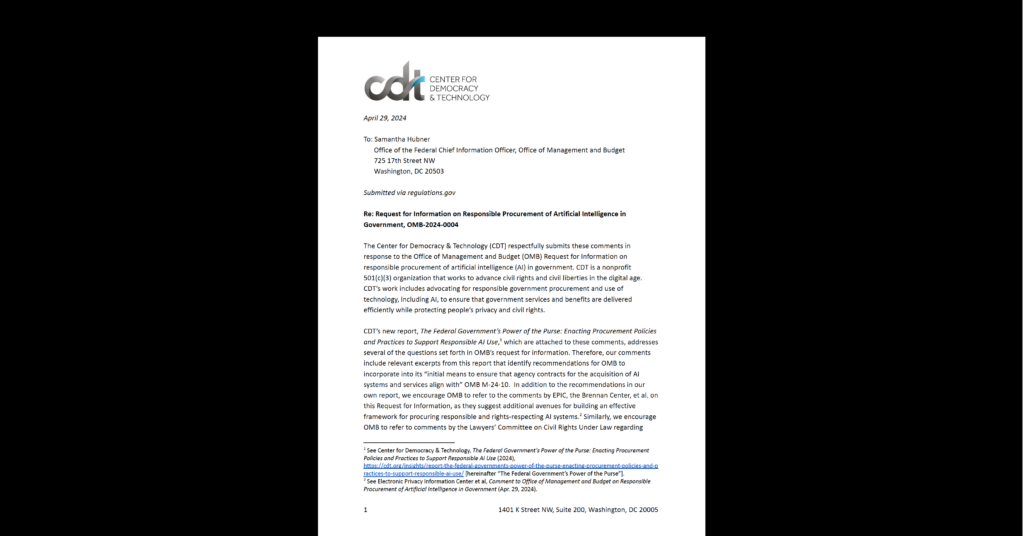Court Rebuffs ASCAP’s Ringtone Grab
A federal court ruled yesterday that mobile phone carriers do not need to pay copyright performance royalties for the ringtones their customers choose to legally download and use. The ruling is a win for consumers and precisely the result that CDT, EFF, and Public Knowledge urged in an amicus brief filed earlier this year. Contrary to the performance-rights organization ASCAP’s strained assertions, the court ruled, “When a ringtone plays on a cellular telephone, even when that occurs in public, the user is exempt from copyright liability, and [carriers are] not liable.” In other words, neither you nor your cellular phone company owe ASCAP a few pennies every time your phone bursts into Raffi’s Bananaphone.
While ASCAP had made public statements that it would never go after individuals for copyright infringement, its demand for royalties from Verizon and AT&T implied that each customer was infringing copyright every time his or her phone rang, even using a ringtone that the user legally purchased. The court appropriately found that such uses would be non-infringing under section 110(4) of the Copyright Act, which exempts performances undertaken “without any purpose of direct or indirect commercial advantage.” This seems like common sense, and Fred von Lohmann at EFF has neatly summed up the implications with some apt comparisons: “This ruling should also protect consumers who roll down their car windows with the radio on, who take a radio to the beach, or who sing ‘Happy Birthday’ to their children in a public park.”
In addition to exempting ringing phones from the performance right, the court also ruled that the carriers were not directly responsible for ringtone playback. ASCAP’s argument that the carriers were liable for ringtone performances is reminiscent of the plaintiffs’ argument in the Cablevision remote-storage DVR case, and indeed the judge here relied on the Second Circuit’s ruling in that important case to reject the argument. The Second Circuit found that Cablevision was not directly liable for remotely held DVR recordings initiated by customers, even though Cablevision maintained the servers doing the recording.
That case’s importance is underscored by the court’s reliance on it here: “Verizon’s only role in the playing of a ringtone is the sending of a signal to alert a customer’s telephone to an incoming call. . . . Once the customer has downloaded the ringtone onto her telephone, she controls the telephone and makes the decisions that determine whether that ringtone will be triggered . . . And, of course, it is someone else entirely – the caller – who has initiated this entire process.” This is the correct conclusion; individuals’ ringtones are private uses of music, not something initiated by or the responsibility of the phone company. This ruling is a win for consumers and innovation. The court has rejected an undue expansion of the public performance right and licensing costs, preserving the ability of consumers to make private uses of the music they legally purchase.
Additionally, while selling ringtones may not be all that innovative today, in following the Second Circuit decision in the Cablevision case, the court has reinforced the notion that companies should not be directly liable for customers’ actions simply for providing innovative services.


